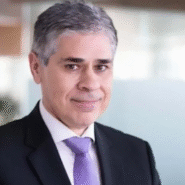Masayoshi Son was born on August 11, 1957, in Tosu, Japan. Now 66 years old, he is the CEO of SoftBank Group, one of the most influential technology conglomerates in the world. An entrepreneur and engineer with deep roots in finance and innovation, Son has long been considered one of the most powerful business figures in Asia, and among the five richest individuals in Japan.
Beyond leading SoftBank, Son also served as Chairman of Sprint Corporation—now merged with T-Mobile US—and continues to influence the global telecom and tech sectors through his investments and vision for artificial intelligence.
Education and Early Ventures
Son comes from a Korean-Japanese family and adopted his grandfather’s surname early in life. Until 1973, he lived in Japan, but at age 16, he left for the United States as part of a student exchange program. He completed high school at Holy Names University and went on to study at the University of California, Berkeley, where he earned a degree in Economics.
While at Berkeley, he was already immersed in computer science and electronic commerce. His early projects included importing and selling arcade machines and working with a university professor to develop an electronic language translator. That device was later sold to Sharp Corporation for approximately $500,000.
This early success gave Son the capital to launch his most ambitious project: SoftBank.
Founding and Expansion of SoftBank Group
Just one year after graduating, Son launched SoftBank Group, initially focused on software distribution. At only 24 years old, his company attracted the attention of Japan’s electronics and video game industries, as well as key media outlets that helped drive visibility for software as a consumer commodity.
Despite a serious illness that sidelined him for a period in his late twenties, Son returned to expand SoftBank rapidly. By 1990, the company had gained national recognition. That same year, he acquired Japanese citizenship and began positioning SoftBank as a tech investment powerhouse.
SoftBank’s strategy from the outset was to operate as a conglomerate, investing in and acquiring companies across different but related sectors—especially in technology, finance, and telecommunications. Son’s early decision to invest $20 million in Alibaba, a startup founded by his friend Jack Ma, became one of the most profitable tech bets in history.
Strategic Vision and Global Reach
From 2005 to 2008, SoftBank diversified aggressively. The group acquired a professional baseball team, bought Vodafone Japan to enter the mobile telecom market, and expanded into internet infrastructure in Korea. It also tested luxury product integration through a collaboration with Tiffany & Co., launching a diamond-encrusted mobile phone as a branding exercise.
Son’s leadership style has consistently focused on anticipating market trends. He capitalized on the internet boom in the 1990s, navigated the dot-com crash, and weathered multiple tech cycles with bold investments. His philosophy combines long-term vision with aggressive capital deployment, especially in high-growth startups and disruptive technologies.
Under his direction, Sprint became one of the leading wireless network providers in the U.S., prior to its merger with T-Mobile. One of SoftBank’s subsidiaries is managed by Son’s brother, adding a familial dimension to the conglomerate’s leadership.
Artificial Intelligence and the Future
Masayoshi Son has publicly declared that SoftBank’s next frontier is Artificial Superintelligence. Unlike current applications of AI, Son’s vision involves a complete shift in data architectures, autonomous decision-making, and advanced robotics.
Despite several investment setbacks—particularly in ventures like WeWork—Son remains focused on the AI revolution. He has stated that SoftBank’s strategy is now oriented toward dominating this new technological wave, with substantial capital reserved for initiatives in AI, robotics, and deep learning infrastructures.
Legacy and Influence
Masayoshi Son’s trajectory is one of calculated risks, visionary leadership, and relentless pursuit of innovation. With SoftBank’s evolving investment portfolio and a personal mission to lead in the age of artificial superintelligence, Son has become a defining figure in global tech entrepreneurship.
His influence spans continents and industries, and he continues to shape the narrative of what technological conglomerates can achieve in the 21st century.








